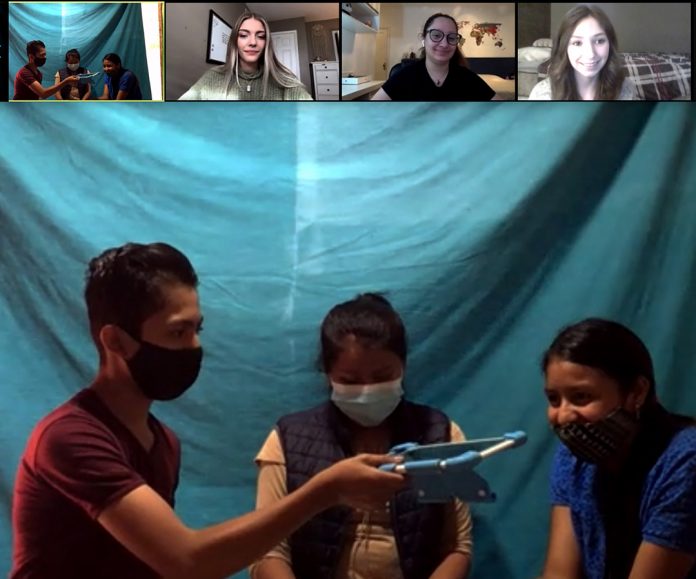The pandemic is not preventing Durham College (DC) from continuing its work with students around the world.
DC is launching a series of virtual workshops in March aimed at helping students in Guatemala tell stories through podcasts, articles and videos. The workshops are part of what DC calls its Faculty-Led Classroom Abroad, known as FLCA@Home – Storytelling.
The FLCA@Home project is led by Journalism – Mass Media Professor, Danielle Harder, and is available to students in DC’s School of Media, Art and Design (MAD) who have applied to participate.
MAD students will work in collaboration with students aged 14-20 in Guatemala.
Working with the non-profit organization, ‘Students Offering Support’ (SOS), and a translator, DC students will work with those in Guatemala to teach and create stories virtually about the challenges faced in their communities based on the United Nations 17 interlinked Sustainable Development Goals (SDGs).
The project is funded by the Government of Canada’s Outbound Student Mobility Pilot Program, designed and administered by Colleges and Institutes Canada.
Due to COVID-19, FLCA work has had to transition to a virtual environment.
Prior to the pandemic, FLCAs have seen DC students travel to Guatemala, South Africa, Peru, and Ireland.
Janine Knight-Grofe, DC’s Manager of International Education, said FLCA@Home is an innovative way to continue global learning opportunities without the requirement of students leaving their homes, not only during the pandemic but once COVID-19 restrictions have been lifted, as well.
Knight-Grofe said since 2018 DC has provided eight Faculty-Led Classrooms Abroad, including two FLCAs@Home, during the pandemic.
The projects have involved 79 students, she added.
In February of 2020, just before the pandemic shut down most of the world, students from DC’s Journalism – Mass Media program travelled to Guatemala to participate in a digital storytelling FLCA workshop.
The digital storytelling FLCA was designed for journalism students to teach students in Guatemala how to film, create and tell stories within their communities through videos based on the SDGs, such as poverty and equality for education.
Meagan Secord, now a DC journalism grad, said her group’ helped Las Arrugas students create a video to highlight the importance for parents in Guatemala to invest in their daughter’s education.
In October and November, 2020, Durham College journalism students worked with students in Guatemala virtually, to help them create podcasts about their community.
“Some of the SDG’s covered in the podcasting were poverty, gender equality, and water management,” said Laura Barbosa, a coordinator for SOS. “Everyone involved had fun and learned more about self-confidence, commitment and teamwork while developing technology skills.”
The podcast storytelling FLCA@Home workshops allowed DC students to gain cultural and global perspectives all while utilizing the skills they are learning in their program, added Barbosa.
Simran Kaur, a second-year journalism student who participated in the podcasting FLCA@Home workshop, said “the students inspired me. They were just kids with big dreams and hearing their stories inspired me to want to do more.”
Another journalism student, Andrea Eymann, said, “to hear what the students accomplished in the little time we had to show them the ropes, and the motivation they had to get it done, it inspires me every day to always push forward.”
Knight-Grofe said she is pleased the global connections are working but DC would like to see students continue to travel to other countries in a post-COVID-19 world.
“Global learning doesn’t only take place in the country, it takes place by working together in groups, it takes place by listening to other people, how they communicate and watching their cultural cues,” she said.




